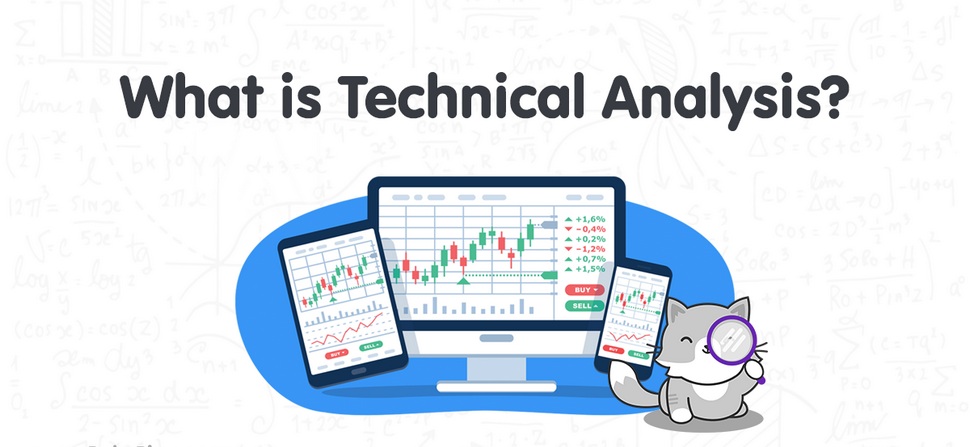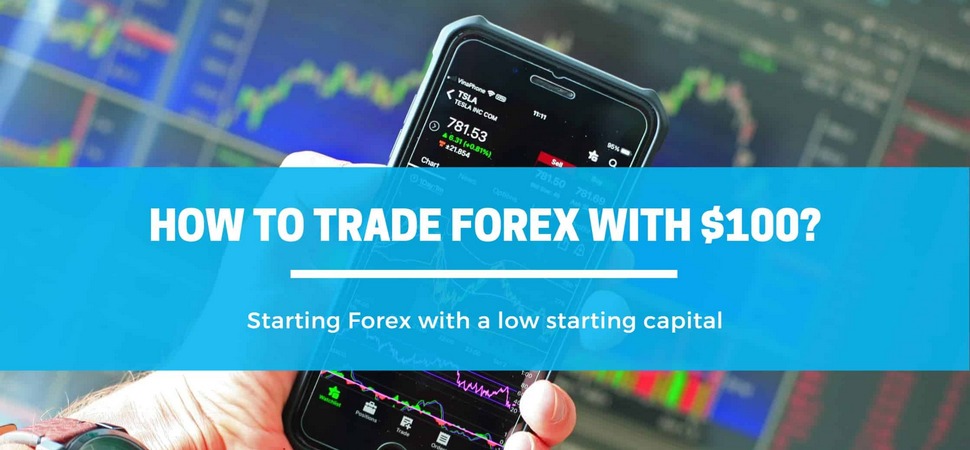02.10
Share ArticleIs $100 enough to start trading Forex? Find out in this comprehensive guide. I part
In the first part of which, we will understand the basics of trading on the Forex market. To find out whether you can start trading with 100 dollars and how to do it successfully, read all parts of our comprehensive article.
Section 1: Introduction to Forex Trading
Forex trading, also known as foreign exchange trading or simply FX trading, is the buying and selling of currencies in the global market. This market is decentralized and operates through various financial centers around the world. Essentially, it is a network of buyers and sellers who transfer currency to each other at an agreed upon price. It is the means by which individuals, companies and central banks convert one currency into another. If you have ever traveled abroad, then you have had to make transactions on the Forex market.
The main reason for the existence of the Forex market is to facilitate international trade and investment by allowing businesses that earn income in one currency to pay for goods and services in another. However, it has turned into a platform for speculators - traders seeking to profit from changes in exchange rates.
The Potential of Forex Trading as a Form of Personal Investment
Forex trading as a way of investing opens up wide opportunities. One of the most attractive features of this market is its scale and liquidity. According to the Bank of International Settlements, its daily trading volume exceeds 5 trillion. US dollars, making it the largest and most liquid financial market in the world. This high liquidity means that trades can generally be executed quickly and easily, so price stability remains relatively constant.
Forex trading also provides high levels of leverage, which means traders can control large positions using relatively small amounts of money. This leverage can magnify profits, but it should be noted that it also carries the potential to magnify losses.
Another key feature of Forex trading is its 24/7 nature. The market operates 24 hours a day, five days a week, providing constant trading opportunities. This allows investors to react to news events as they happen, rather than waiting for the market to open.
Forex trading can be a potentially profitable and interesting way to invest. However, it is not without risk. A high degree of leverage in the Forex market can lead to both significant losses and gains. Therefore, investors should approach it with caution, with a thorough understanding of market dynamics and a well-planned trading strategy.
In the following sections, we will delve into the basics of Forex trading, consider whether it is advisable to start with $100 capital, discuss the risks, and provide practical advice for those considering this investment route. Follow the news!
Section 2: Understanding the Basics of Forex Trading
In order to fully understand the potential of Forex trading with a modest $100, you need to understand the fundamental concepts of Forex. Such fundamental concepts include currency pairs, pips, leverage and margin.
Currency pairs
The first concept is “currency pairs”. In Forex trading, currencies are always traded in pairs. For example, the EUR/USD pair represents the euro against the US dollar. The first currency (in this case, the euro) is called the base currency, and the second (US dollar) is the quote currency. When you buy a currency pair, you are buying the base currency and selling the quote currency. Conversely, when you sell a currency pair, you are selling the base currency and buying the quote currency.
Pips
The next concept is “pips”. A pip is a measure of the change in the value of a currency pair in the Forex market. In most currency pairs, this is usually the fourth decimal place. For example, if EUR/USD moves from 1.3050 to 1.3051, then that $0.0001 increase in value is ONE PIP. Thus, a pip is a standard unit of measurement for changes in exchange rates, which is very important for calculating profits and losses.
Leverage and margin
The concepts of leverage and margin are also very important for understanding Forex trading. Leverage allows you to open larger positions than your capital would normally allow by borrowing money from a broker. For example, if your broker offers you 100:1 leverage, you can manage a $10,000 position with just $100. However, while leverage can magnify your profits, it can also magnify your losses.
On the other hand, margin is the amount of your own funds that must be deposited to open a transaction. Essentially, it is securing a loan provided by a broker (using leverage). If open trades begin to generate significant losses and the account balance is insufficient to cover these losses, the broker may issue a margin call, requiring additional funds to be deposited into the account.
Global functioning of the Forex market
Now that we've covered the basic concepts, let's discuss how the Forex market works on a global scale. Unlike stock exchanges, which have specific opening and closing times, the Forex market operates 24 hours a day. This 24/7 operation is possible because there is always at least one financial center in the world (for example, Sydney, Tokyo, London or New York) that is open for business. This constant operation means that traders can react to news and market events in real time, making it very dynamic and volatile.
Essentially, understanding these basic concepts is the first step towards becoming an experienced Forex trader. Understanding these principles will allow you to make more informed decisions when entering into transactions, which will increase your profitability potential while minimizing risk.
Having understood the basics of Forex trading, we will move on to the second part, where we will look at the question whether $100 is enough to start trading and how to manage risks. Stay tuned for updates, to be continued…
Link to the second part https://euro-economy.com /en/useful-information/how-to-minimise-risks-and-choose-a-successful-strategy
Link to the third part https://euro-economy.com /en/useful-information/real-experience-of-forex-traders-stories-of-successful-traders
Link to the fourth part https://euro-economy.com /en/useful-information/what-do-i-need-to-know-about-ethics-and-fraud


Reviews